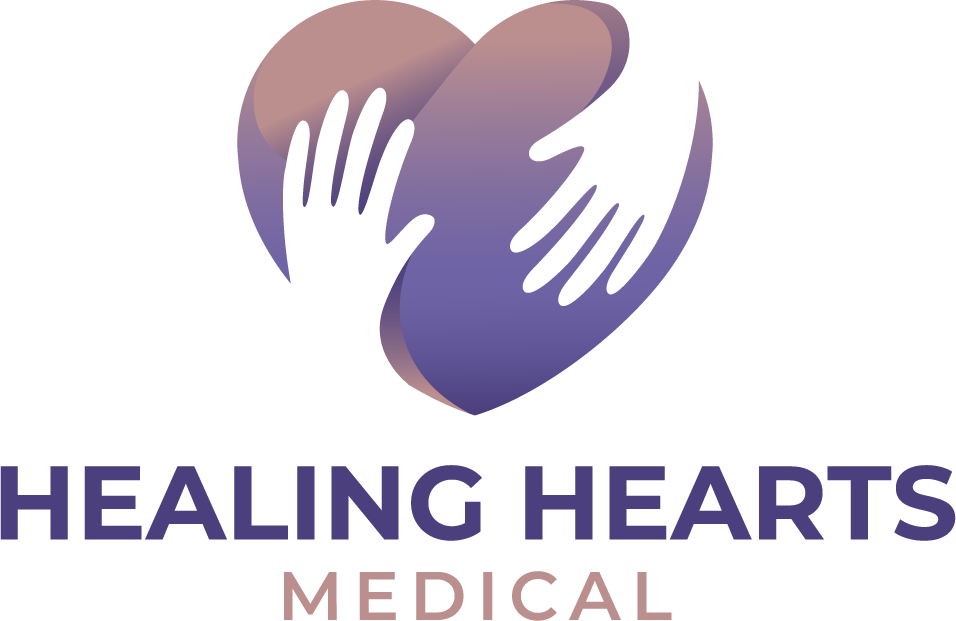It’s not easy to notice when someone you care about needs extra support, but recognizing the top signs is essential. Pay attention to changes in personal hygiene, struggles with medications, and increasing forgetfulness. These can be subtle hints that your loved one might benefit from personal care services. You’ll want to make sure they maintain their dignity and quality of life. So, what other signs should you be looking out for?
Changes in Personal Hygiene and Grooming
As society evolves, so do our personal hygiene and grooming habits, reflecting broader cultural shifts and technological advancements. You might notice that someone close to you is struggling with their personal grooming routines, signaling a need for extra help. It’s essential to stay attentive to any changes in hygiene habits, as they can indicate underlying issues.
If a loved one seems less interested in maintaining their usual grooming standards, like bathing or dressing neatly, it might not just be forgetfulness. Often, it points to physical or emotional challenges they’re facing. Being proactive and empathetic, you can gently address these shifts, offering support and resources. Recognizing these signs early can guarantee they receive the care they need, safeguarding their dignity and well-being.
Difficulty Managing Medications
Noticing a loved one’s struggle with personal care can often extend beyond grooming habits to include challenges like managing medications. It’s vital to guarantee they take the right dose at the right time to maintain their health. If you notice missed doses or incorrect amounts, it might be time to reflect on personal care services that offer medication reminders and management.
Here’s how personal care services can help:
| Challenge | Impact | Solution |
| Missed doses | Health complications | Regular medication reminders |
| Wrong doses | Risk of adverse effects | Professional medication management |
| Confusion with pills | Increased stress and errors | Organized pill dispensers |
Increased Forgetfulness or Confusion
When your loved one starts forgetting important details or seems increasingly confused, it can be both concerning and challenging. Memory lapses, like misplacing items or forgetting appointments, might suggest early signs of cognitive decline. As these instances become more frequent, they may hinder daily activities and safety. It’s vital to approach these changes with empathy and understanding, as your loved one may feel frustrated or embarrassed.
You can help by observing patterns in their forgetfulness and seeking professional advice. A healthcare provider can assess the situation and suggest personal care services if needed. These services can offer structured routines and support to manage memory issues, ensuring your loved one’s safety and well-being while maintaining their dignity and independence.
Decline in Mobility and Balance
You might notice a decline in mobility and balance, which can increase the risk of falls and make daily tasks more challenging. It is crucial to recognize these changes early, as they often lead to a limited range of motion that affects overall independence. We’re here to offer guidance and support to help you maintain your safety and quality of life.
Increased Risk of Falls
As people age, the decline in mobility and balance can greatly increase the risk of falls, posing a serious threat to their safety and well-being. You want to guarantee your loved one remains safe, and understanding the importance of fall prevention is essential. Begin by conducting thorough safety evaluations at home. Look for potential hazards like loose rugs or poor lighting. Consider consulting professionals who specialize in evaluating fall risks. They can recommend personalized home care solutions, such as grab bars or non-slip mats. Encourage exercises that improve strength and balance, as they’re key to reducing fall risk. Don’t hesitate to explore personal care services; they can offer invaluable support in maintaining a secure environment for your loved one.
Difficulty With Daily Tasks
Beyond the immediate risk of falls, the decline in mobility and balance often leads to difficulty with daily tasks, which can affect a person’s sense of independence and quality of life. As you notice these changes, it’s essential to reflect on daily routine adjustments that accommodate your loved one’s needs. Evaluate their assistance preferences, ensuring they feel respected and understood. This proactive approach can help maintain their dignity and comfort.
Here’s a guide to potential adjustments:
| Task | Possible Adjustments |
| Getting dressed | Use adaptive clothing |
| Bathing | Install grab bars |
| Cooking | Simplify meal prep |
| Housekeeping | Hire cleaning assistance |
| Transportation | Arrange for rides or services |
Taking these steps can ease their daily routine and improve their overall well-being.
Limited Range of Motion
With aging or certain health conditions, a limited range of motion can greatly impact one’s ability to move freely and perform daily activities. You might notice joint stiffness becoming a barrier to simple tasks like reaching for items or climbing stairs. This decline in mobility and balance can make your loved one more susceptible to falls and injuries. Recognizing these signs early is vital in providing the right support.
Engaging in physical therapy can be a beneficial step. It helps improve flexibility, strengthen muscles, and enhance balance. Encourage your loved one to see a professional who can tailor exercises to their specific needs. By integrating physical therapy, you empower them to regain confidence in their movements, improving their overall quality of life.
Neglected Household Responsibilities
When life gets busy, it’s easy for household chores to slip through the cracks, but neglecting these responsibilities can lead to a chaotic home environment. You might notice your loved one’s cleaning habits have declined, with dust accumulating or clutter overtaking once tidy spaces. This shift can indicate they’re struggling to maintain their home organization. It’s essential to approach this issue with empathy, understanding that changes in physical or mental health might be affecting their ability to manage these tasks.
Consider engaging in a conversation to offer support and explore solutions. Personal care services can provide much-needed assistance, helping your loved one regain control over their living space. By addressing these challenges together, you’re ensuring their home remains a comfortable, welcoming place.
Noticeable Weight Loss or Poor Nutrition

You might notice that your loved one is experiencing noticeable weight loss or signs of poor nutrition, often due to changes in eating habits or difficulty preparing meals. It’s important to address these issues promptly, as they can impact overall health and well-being. By exploring personal care services, you can guarantee they receive the necessary support to maintain a balanced diet.
Changes in Eating Habits
Although personal care services often focus on physical assistance, it’s crucial to recognize changes in eating habits that may indicate noticeable weight loss or poor nutrition. You might notice your loved one skipping meals or showing disinterest in foods they once enjoyed. Adjustments in meal preferences can signal shifting nutritional habits, which might require intervention. To identify potential issues, consider these signs:
- Sudden Weight Loss: Rapid changes could indicate inadequate nutrition.
- Limited Food Variety: A narrow diet might result in nutrient deficiencies.
- Spoiled Food: Unused or rotten food could point to a lack of appetite or interest.
- Changes in Appetite: Eating considerably more or less than usual can disrupt nutritional balance.
Being attentive to these factors helps guarantee your loved one maintains their health.
Difficulty Preparing Meals
How can you guarantee that your loved one’s nutritional needs are met when they face difficulty preparing meals? Start by recognizing the signs of noticeable weight loss or poor nutrition. Consider incorporating meal planning into their routine. This guarantees they have easy access to balanced meals without overwhelming them. Explore cooking assistance options, like hiring a personal care provider or joining a meal delivery service specializing in customized nutrition. These resources can alleviate the burden of meal preparation and guarantee they receive the nutrients they need. Encourage open communication about their dietary preferences and any challenges they face. With empathy and the right support, you’ll help them maintain their health and well-being while addressing their cooking difficulties.
Withdrawal From Social Activities and Hobbies

When individuals begin withdrawing from social activities and hobbies they once cherished, it’s often a sign that something more profound might be unfolding beneath the surface. Social withdrawal and hobbies neglected can indicate emotional distress or cognitive decline. Here’s how you can recognize this change:
Withdrawing from cherished activities may signal underlying emotional distress or cognitive decline.
- Isolation: They may avoid gatherings or stop attending clubs they were once passionate about.
- Disinterest: Activities that used to bring joy now seem burdensome or unappealing.
- Mood Changes: Increased irritability or sadness may accompany social withdrawal.
- Changes in Routine: Noticeable shifts in daily habits, such as sleeping more or less.
Understanding these signs allows you to approach your loved one with empathy and explore personal care services that can help them re-engage with life.
Frequently Asked Questions
How Do I Start a Conversation About Personal Care Services With My Loved One?
When starting a conversation about personal care services, approach with sensitivity. Express your concern and emphasize support, not criticism. Acknowledge their feelings and discuss benefits. Assure them it’s about enhancing their quality of life, not limiting independence.
What Are the Costs Associated With Personal Care Services?
Understanding the cost breakdown of personal care services is essential. You’ll want to take into account hourly rates, additional fees, and potential insurance coverage. Effective financial planning can help manage these expenses while ensuring your loved one receives quality care.
Are Personal Care Services Covered by Insurance or Medicare?
You’ll find that insurance coverage and Medicare benefits for personal care services vary. Medicare often doesn’t cover long-term care, but certain short-term services might qualify. Always check your policy details and consult with an expert for guidance.
How Do I Choose the Right Personal Care Service Provider?
Evaluate personal care options by researching providers’ credentials, reviews, and services offered. Visit facilities, ask questions, and trust your instincts. Ascertain the service provider evaluation includes compatibility with your loved one’s needs and your family’s preferences.
What Qualifications Should Personal Care Aides Have?
When considering personal care aides, you’ll want to guarantee they meet certification requirements and possess essential caregiver skills. Look for empathy, communication, and practical experience. These qualifications guarantee your loved one receives the best possible care.
Conclusion
It’s crucial to stay attuned to your loved one’s needs. If you notice changes in hygiene, medication management, memory, or social engagement, it’s time to reflect on personal care services. Don’t wait until it’s too late, taking action now guarantees their safety and dignity. By providing proactive support, like meal planning and emotional companionship, you’ll enhance their quality of life. Healing Hearts Medical Homecare can help by offering personalized care plans that address these needs, ensuring your loved one receives the compassionate support they deserve. Trust your instincts and seek resources that’ll empower you both on this journey.

